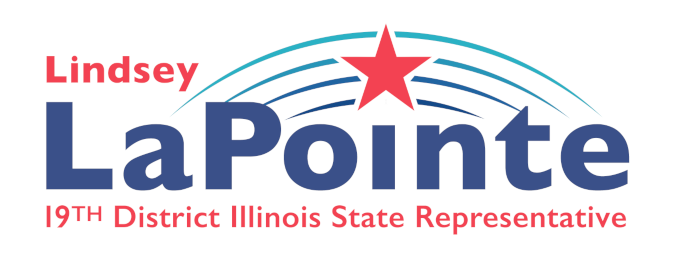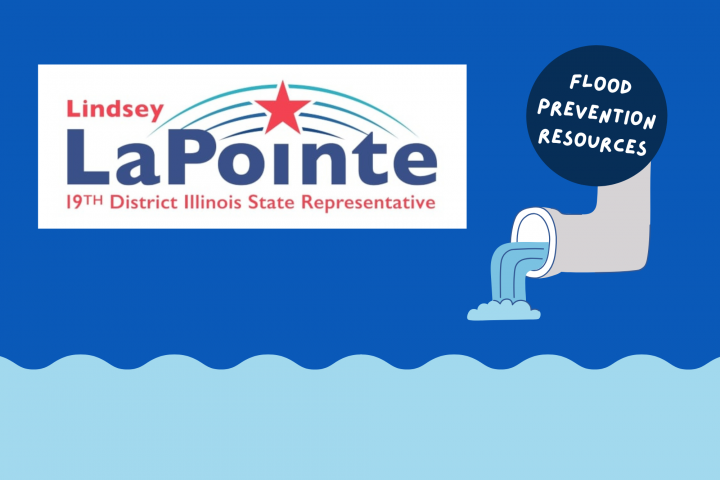This September, many residents in our district had their homes ravaged by the September 11th supercell rainstorm. While the Chicago Department of Water Management does have plans to expand and improve the sewer system in our area, these developments won’t happen overnight. As we wait for expansions to be made, there are concrete things we all can do to help prevent future basement flooding and sewer backup. The more of us that take these preventative steps which Illinois Environmental Council (IEC) and MWRD have outlined for us, the more protected our neighborhoods will be from potential future floods. Although many households have sourced information from friends, social media, and various sources, we wanted to compile what we have learned in the hopes it’s helpful.
Recommendations from the Illinois Environmental Council (IEC) The IEC is an Illinois environmental leader working to safeguard Illinois – its people, plants and animals, and the natural systems one which all life depends.
- To help yourself- watch the weather and be prepared–forecast for rain overnight or all day should trigger some action→ moving your car off flood prone streets; checking sump pumps,plan for reroute if you live near a viaduct.
- To help everyone- keep storm drain clear. This is especially important in the fall (leaves).
- Long term options:
- Use nature to your advantage→ Avoid cutting down trees unless they pose a physical threat. Soil near trees can soak up water and tree canopies reduce impact of raindrops on barren surfaces. Native plants similarly soak up rain. For Chicago residents, the city council passed an ordinance last year that protects residents from fines and fees as native plants can be mistaken for weeds. Native plants can also reduce the amount of lawn that you have to cut
- Advocate for more green infrastructure funding like green alleys. Share your flooding experience with your alderman and city council.
- Long term options:
Flood Prevention 101 from the Metropolitan Water Reclamation District (MWRD)
MWRD is a special-purpose district responsible for treating wastewater and providing stormwater management for residents and businesses in Cook County.
- Pay attention to weather forecasts for your area and make plans to reduce your water use during a rainstorm to help increase the storage capacity in sewer collection systems.
- Ensure that your gutters and drains are clear to allow water to run freely through them.
- Consult with a licensed plumber about installing flood prevention tools that can stop backflow water from flooding your basement. These include overhead sewers, checking valves, sewer traps and backflow prevention devices.
- Consult with a licensed plumber or water proofing company to stop seepage from entering a home by installing drain tiles around the perimeter of the home and connecting to a sump pump to channel waterway from the foundation.
- Inspect your home’s lateral connections for blockages or damages to determine the need for repair or replacement to prevent basement backups.
- Plan landscaping to avoid root intrusion into sanitary sewer pipes.
- Ensure your sump pump is turned on and operating as designed. Install a battery back-up pump in case of power outages that come as a result of storms.
- Eliminate sources of stormwater from entering sanitary sewers in private dwellings by disconnecting downspouts.
- Consider planting or installing more pervious surfaces to absorb stormwater in place of driveways, lots or other paved areas.
- Install a rain barrel and connect it to a downspout. You can save and reuse the rainwater. Additionally, consider installing a rain garden.
- Repair or replace broken or missing cleanout caps.
- Cover window wells to prevent rain and snow from entering window well drains.
In addition to these recommended actions from IEC and MWRD, it can be worth looking into acquiring flood insurance as well as sewer backup insurance to make sure you’re protected in the event flooding does occur. For more information on flood and sewer backup prevention, please visit any of the following links from the city, county, and state:
https://mwrd.org/flood-prevention-101
https://www.chicago.gov/city/en/depts/water/supp_info/basement_floodingpartnership.html
https://www2.illinois.gov/dnr/WaterResources/Pages/GuideToFloodproofing.aspx


